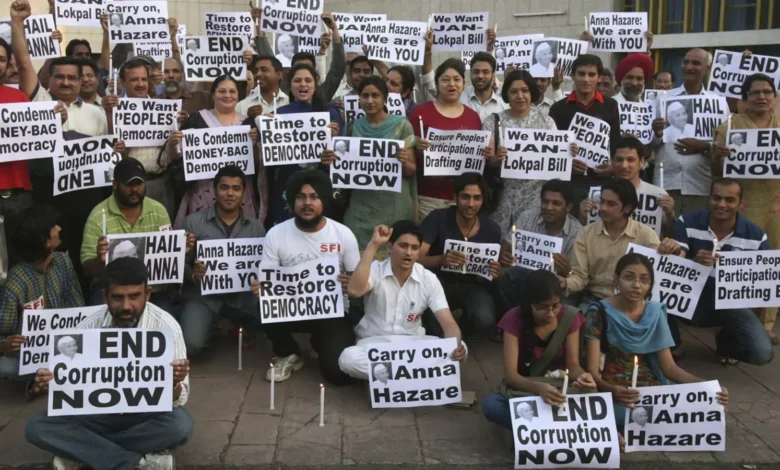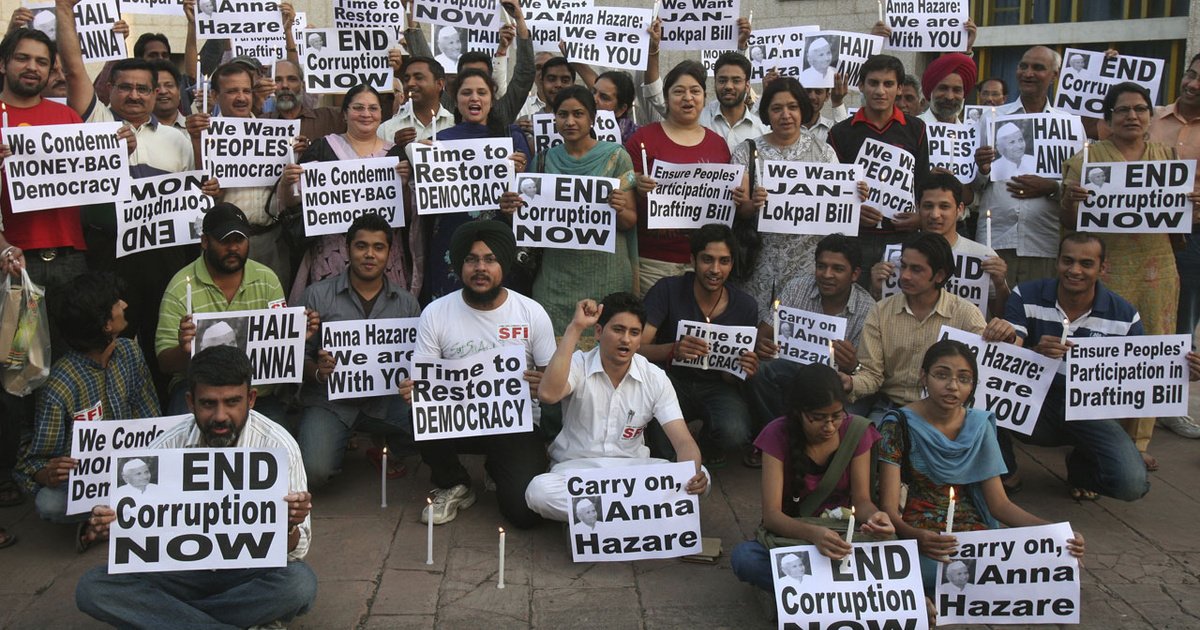Corruption Free India for a Developed Nation: The Power to Progress

To achieve a Corruption-Free India for a Developed Nation, stringent measures must be implemented to eradicate corrupt practices and promote transparency. This is crucial for fostering economic growth, social harmony, and building a trusted governance system that benefits all citizens.
Corruption undermines the foundation of a nation’s progress and must be eliminated through collective efforts and ethical practices. Transparent policies, strict accountability measures, and public awareness campaigns are vital to creating a corruption-free environment that propels India towards becoming a developed and prosperous nation.
By combating corruption at all levels, India can pave the way for sustainable development and a brighter future for its people.

Credit: ideas.ted.com
Contents
Understanding Corruption
Corruption is a significant hindrance to India’s development as a nation. Achieving a corruption-free society is crucial for fostering growth, justice, and transparency. By combating corruption, India can work towards building a fair and just society for all its citizens.
Definition Of Corruption
Corruption refers to dishonest or fraudulent conduct by those in power, typically involving bribery or improper gain.
Corruption As A Deterrent To Development
Corruption acts as a major obstacle to the progress and prosperity of a nation, hindering economic growth and social stability.

Credit: www.cfr.org
Why Corruption-free India Is Important
Why Corruption-Free India is Important
Why Corruption-Free India is Important: Corruption has a detrimental impact on society and impedes the progress of a nation. Eliminating corruption is crucial for the development and growth of India as a developed nation. In this context, understanding the effects of corruption on society and the benefits of a corruption-free India becomes imperative.
Impact Of Corruption On Society:
- Undermines trust in institutions and erodes societal values.
- Leads to inequality, as resources are often unfairly distributed.
Benefits Of A Corruption-free India:
- Promotes transparency and accountability in governance.
- Attracts foreign investments, fostering economic growth.
Measures Taken To Reduce Corruption
To reduce corruption and achieve a corruption-free India for a developed nation, measures such as implementing Right to Public Services laws and Right to Service legislation have been taken. These initiatives aim to increase transparency, accountability, and discourage corrupt practices among government officials.
Right To Public Services Laws
The implementation of Right to Public Services laws has been a crucial measure taken by India to reduce corruption and promote transparency and accountability in government operations. These laws guarantee the citizens’ rights to receive government services within a specified time limit and without any undue influence or corruption.
The Right to Public Services laws aim to streamline the service delivery process and eliminate bribery and favoritism in government departments. These laws empower citizens to hold the government accountable for any lapses in service delivery. By ensuring timely and corruption-free access to government services, these laws encourage good governance practices and create a more efficient and accountable administration.
Transparency And Accountability In Government
Transparency and accountability in government have been major priorities in India’s fight against corruption. The government has implemented several measures to enhance transparency and hold officials accountable for their actions. One such measure is the use of technology to bring more transparency in various government processes.
The digitization of government services and information has made it easier for citizens to access government records and monitor the performance of public officials. Online portals and mobile applications have been developed to provide citizens with real-time information on government projects, budgets, and expenditure. This increased transparency helps in preventing corrupt practices and ensures that public resources are utilized efficiently.
The government has also established anti-corruption bodies like the Central Vigilance Commission (CVC) to investigate corruption cases and take appropriate action against the guilty. These bodies play a vital role in ensuring accountability and promoting ethical conduct among government officials.
Initiatives For Anti-corruption Education And Awareness
To address the root causes of corruption and prevent its recurrence, India has taken various initiatives for anti-corruption education and awareness. The government has introduced anti-corruption modules in the school curriculum to educate students about the detrimental effects of corruption on society and the importance of integrity and ethical behavior.
Additionally, public awareness campaigns and workshops have been organized to sensitize the general public about the negative consequences of corruption. These initiatives aim to instill a sense of social responsibility and promote a culture of transparency and honesty in society.
The government has also encouraged the use of technology, such as online complaint portals and helplines, to facilitate the reporting of corruption cases. By making the reporting process anonymous and hassle-free, these initiatives encourage citizens to come forward and play an active role in eradicating corruption.
Role Of Citizens In Achieving A Corruption-free India
The Role of Citizens in Achieving a Corruption-Free India
Individual Responsibility
In the journey towards a corruption-free India, every citizen has a responsibility to uphold honesty and integrity in their personal and professional lives. By refusing to engage in corrupt practices, individuals can set a positive example for others and contribute to the overall ethical fabric of society. It is imperative for each citizen to prioritize morals and ethical behavior in all aspects of life.
Collective Action And Mass Movements
Collective action and mass movements play a vital role in holding accountable and influencing change in the government. Throughout history, mass movements have been successful in shaping policy and driving systemic change. By banding together and mobilizing for a common cause, citizens can create a powerful force to challenge corruption and demand transparency from their leaders.
Promoting Integrity And Ethical Behavior
One of the fundamental ways citizens can contribute to a corruption-free India is by promoting integrity and ethical behavior in their communities. This involves fostering a culture of transparency, fairness, and accountability. By upholding moral principles and advocating for ethical practices, individuals can work towards creating a society where corruption is not tolerated.
Frequently Asked Questions
What Is India Doing To Reduce Corruption?
To reduce corruption, India has implemented Right to Public Services laws for government accountability and transparency.
When A Country Is To Be Corruption Free?
A country can become corruption-free by promoting transparency, accountability, and integrity among its citizens and government.
What Is A Short Note On Corruption Free India?
A “Corruption Free India” is a country where bribery and embezzlement are not tolerated. It is a society where people, businesses, and the government work with integrity and transparency to build a just and fair society for everyone.
Which State In India Has Highest Corruption?
Maharashtra has the highest corruption rate in India.
Conclusion
India has the potential to become a developed nation, but it must address the issue of corruption. A corruption-free India is not just a goal; it is a necessity for the growth and progress of the nation. By eliminating dishonest practices like bribery, embezzlement, and favoritism, India can create a society built on integrity, fairness, and transparency.
This will lead to increased development, justice, and trust among its citizens. It is essential for the entire citizenry to actively work towards making India corruption-free and strive for a better future.



